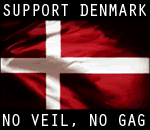Shifting Strategic Alliances, Part 2
EU Referendum is investigating the changes in historic alliances, especially the alliance between The United Kingdom and the United States. In Shifting Strategic Alliances, I linked to "The realignment continues" which explored Australia's elevated status as a strategic partner for the US. At the risk of stating the obvious, this is in response to developments in the European Union.
These developments are explored in "A parallel universe", which explores the "failure" of the UK Presidency of the EU. This passage gets to the relevant point:
These developments are explored in "A parallel universe", which explores the "failure" of the UK Presidency of the EU. This passage gets to the relevant point:
Finland, it seems, as one of its main presidency objectives, is to push for greater ties with the United States, and is going to use the presidency to lobby against the creation of a purely European military alliance within the EU zone. We are told that government officials will "lobby very hard" for a solution that promotes continued American defence interest and trans-Atlantic collaboration in EuropeIt would appear that the "special relationship" isn't so special anymore. The diminution of that relationship is explored in "Taking the 'special' out of the US-UK relationship". This points us to a study forthcoming from the Center For Security Policy entitled "The Wrong Side of the Hill - The 'Secret' Realignment of UK Defence Policy" (pre-publication version - pdf). From the summary:
Finland, along with its Nordic neighbours Sweden and Denmark, is against a European alliance that would overlap or impede the role of NATO and the issue of a pan-EU military alliance, and Finland's growing relationship with NATO, has become so hugely important that it has emerged as a central theme for the presidential election in 2006.
Finnish Premier Matti Vanhanen is taking a personal interest in the issue, telling his Center Party colleagues at a parliamentary conference in the city of Seinäjoki on 31 August that: "I feel there is little to gain from establishing a purely European military alliance that would overlap with NATO, or compete with it." He added, "Finland must use its EU presidency to maintain the interest of the United States in Europe and also build political and defence bridges between Europe and the United States."
The very fact that the Finnish premier sees a potential conflict between the development of an EU military alliance and relations with the United States does suggest that there is an important issue at stake here. Furthermore, since the UK is supposed to be at the centre of the NATO alliance, and prides itself on its "special relationship" with the United States, the potential for conflict cannot have escaped the attention of the British government. Rather than leave the running to one of the smaller member states, this should have been taken up by Britain.
But, on this issue, the British presidency has been silent, and all we here are anodyne statement that NATO forms the core of British defence strategy, when all the evidence suggests otherwise.
Bad for EverybodyThe last point leads to the question, "Would British troops under French command do this?"
The likelihood of a complete breakdown in common standards between the U.S. military and those of EU member states is very real. Should Britain continue to realign its defense apparatus with that of the European Union through a procurement policy that excludes and is incompatible with America's, the implications for the United States, Great Britain and perhaps even the EU would be nothing less than devastating:
- The United States will lose a formidable ally and partner in the British military. This would be the case even if Brussels were to permit Britain to fight alongside the United States - something that the recent unpleasantness over U.K. support for the liberation of Iraq demonstrates cannot be assumed. Britain would be unable to offer anything more than token support, as Anglo-American interoperability will inexorably be eliminated.
- Britain's security interests will not be well served, either. After all, the Franco-German aspiration to create a European army - which cannot, as a practical matter, amount to much without Britain's highly professional military personnel and resources, is not really aimed at producing a formidable fighting force. Rather, it is but an instrument for furthering European integration and bringing the British, whose independence has long been a thorn in the side of continentals, under discipline.
- It is predictable, moreover, that - having created this Rapid Reaction Force - the Europeans will feel obliged to use it, albeit in what Brussels (read, the French and Germans) view as politically correct ways. These will, at best, fritter away precious British and other European defense resources. At worse, the EU may well become embroiled in conflicts from which it is ill-equipped to emerge victorious. Having done so, it may even require American help - which will be hard to provide given the incompatibility with U.S. systems deliberately designed into EU forces.








<< Home